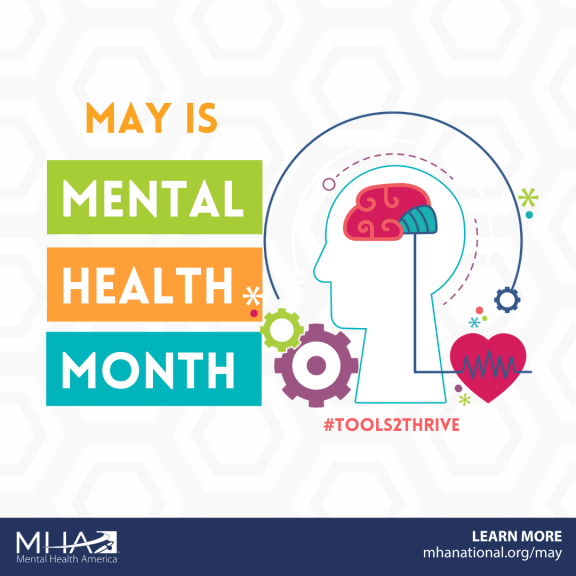May is Mental Health Awareness Month, signaling that there's no better time to strengthen our mental health and improve our emotional resiliency, particularly after such a stressful and exhausting pandemic year.
It’s undeniable that COVID-19 has had a significant impact on the mental health of people of all ages: Before the pandemic, the National Association of Mental Illness (NAMI) estimated that 1 in 5 adults experience mental illness each year, and 1 in 6 U.S. youth aged 6 to 17 experience a mental disorder each year. During the height of the pandemic in June 2020, the CDC estimated even higher rates of mental illness, with nearly 40% of adults struggling with mental health or substance abuse.
It is essential to reduce the stigma around mental health struggles so that your employees will seek help. Here are a few sources of help and education to share with your workforce:
• Search through the educational materials available through the National Alliance on Mental Illness’ You are Not Alone campaign. The Mental Health America Tools 2 Thrive toolkit also offers practice resources to improve mental health.
• The Vanderbilt Health Affiliated Network is offering a behavioral health webinar on Tuesday, May 20, 12-1 p.m. geared toward mitigating anxiety in children and adolescents. Register to learn practical coping strategies for children with anxiety and potential warning signs of behavioral health concerns.
• Vanderbilt Health’s employee health and wellness newsletter recently offered the following four ideas to encourage self-care, which are especially important after such a sustained time of crisis:
- Practice emotion-based coping. Thankfully, emotions are momentary. Emotion-based coping strategies help you stay upright through the emotional waves by matching your actions to your feelings. When you are sad, melancholy or depressed, try a slow and soothing task such as a craft, puzzle or word game. If you’re angry, frustrated or restless, try cleaning your house or cranking up loud music and dancing. Discharge your tension with some laughter by watching a funny video.
- Name your worries. When you feel in the grip of anxiety, try saying what’s bothering you out loud. Take deep breaths and place your hand on your heart to measure your heartbeat. Try noticing your thoughts without judgment, measuring how these thoughts impact your mood and your breathing as they inevitably fade with time.
- Notice unhelpful thoughts but don't dwell on them. Instead of constantly worrying about what may happen tomorrow, practice keeping your thoughts in the present and with what is known. If those thoughts veer to the negative, gently move them back to more hopeful ideas. Find activities to look forward to, no matter how simple.
- Help someone else. Focusing efforts to help other people cultivates better emotional health. Given COVID-19 precautions limiting contact, helping may look a little different, such as calling to check in on a friend, sending encouraging texts or sending uplifting videos to others. Altruism reminds us of the good in humanity and why we prosper in a healthy community.
